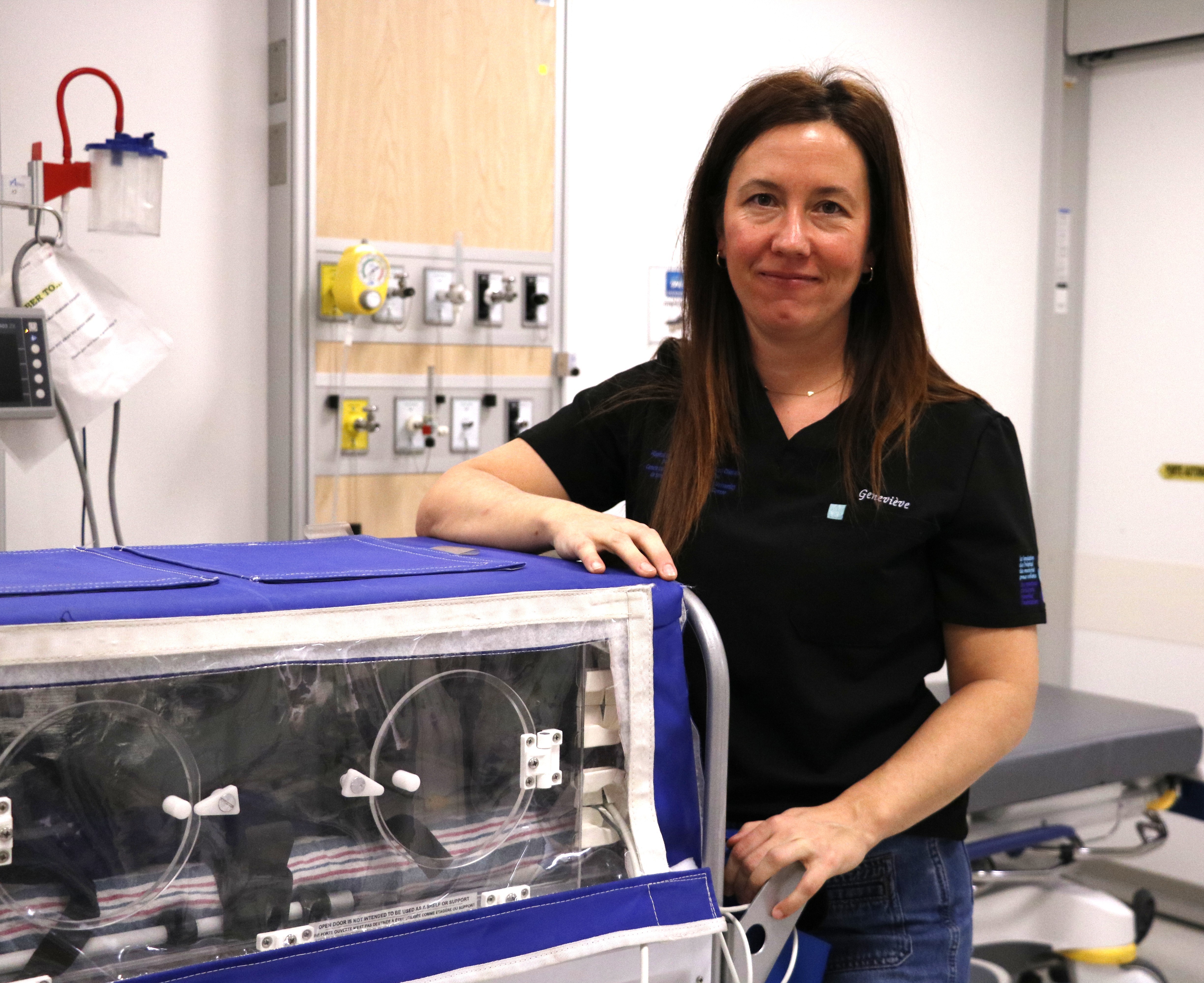
Celebrating Critical Care Transport Nurses at the MCH
18 February 2026
Rise in respiratory infections and measles outbreak: important infection prevention measures at the Montreal Children’s Hospital.
Read moreWelcome to the Montreal Children's Hospital

15 November 2024
Once again this year, viruses and respiratory infections put a lot of pressure on the emergency rooms (ER) at the CHU Sainte-Justine and the Montreal Children’s Hospital (MCH). Faced with a surge in patients, the Greater Montreal’s two pediatric centres join forces to remind parents to avoid going to the ER if their child’s condition does not require immediate care.
The CHU Sainte-Justine and the Montreal Children’s Hospital are also reassuring parents that no child in need of medical care will be turned away.
“Upon arrival at the ER, each child is assessed by a member of the nursing staff, then seen by the doctor in order of priority,” explains Dr. Antonio D’Angelo, Medical Chief of the CHU Sainte-Justine Emergency Department. “Children with colds, flu or gastroenteritis and mild symptoms can expect to wait several hours before seeing a doctor in the ER.”
“Emergency services should be reserved for people whose condition requires immediate care,” adds Dr. Harley Eisman, Medical Director of the MCH’s Emergency Department. “For children who are not seriously ill or injured, other solutions can be considered, such as the 8-1-1 line, or walk-in clinics.”
Between October 1 and October 31, 2024, patients with a minor health problem (categories P4-P5) accounted for over 50 per cent of visits to the MCH ER. For the same period, the average occupancy rate of the MCH ER was 140 per cent.
On their side, the average occupancy rate in the CHU Sainte-Justine emergency department was 120 per cent between October 1 and October 31, 2024. Patients with minor health problems (categories P4-P5) accounted for over 40 per cent of visits to the CHU Sainte-Justine Emergency Department for the same period. However, the occupancy rate has climbed to 142 per cent over the past seven days, while the rate of patients coming to the ER with a minor health problem has reached 45 per cent.
Care at home: often the best solution
“Mild flu symptoms, gastroenteritis and fever, which generally last from three to five days, can be treated at home,” explains Dr. D’Angelo. “When in doubt, you can consult your community pharmacist for prompt advice from a health professional. If symptoms persist, a consultation with a physician remains the preferred option,” he recommends.
“Preventive measures, such as vaccination and good hygiene practices like regular hand-washing, are effective ways to reduce the number of unplanned emergency room visits and the long waits that follow during the busiest time of the year,” adds Dr. Eisman.
For all babies born since April 2, 2024 (and those born since March 2, 2023 with certain medical conditions), a new preventive treatment is being added this year to protect them against respiratory syncytial virus, a common cause of bronchiolitis and pneumonia in toddlers. Visit the MCH website to find out how to receive this medication.
Other options
In case of symptoms, first call Info-Santé at 8-1-1. Nurses are available at all times to assess your child’s condition, advise you and let you know when and whom to consult.
You can also contact your family doctor, your local Centre intégré de santé et de services sociaux (CISSS) or a walk-in clinic. Pharmacists are also excellent advisors.
Furthermore, the MCH and CHU Sainte-Justine websites offer a wealth of advice and information for families.
When to go to the emergency?
It is advisable to go immediately to the emergency room in the following cases:
What to expect while at the Emergency Department ?
Critically ill and injured patients are seen first, so the wait times for less urgent cases may be quite long. Parents should bring along provisions, such as formula, baby food, diapers and acetaminophen or ibuprofen. As the waiting and exam areas are not large, the number of accompanying family members should be kept to minimum when possible.